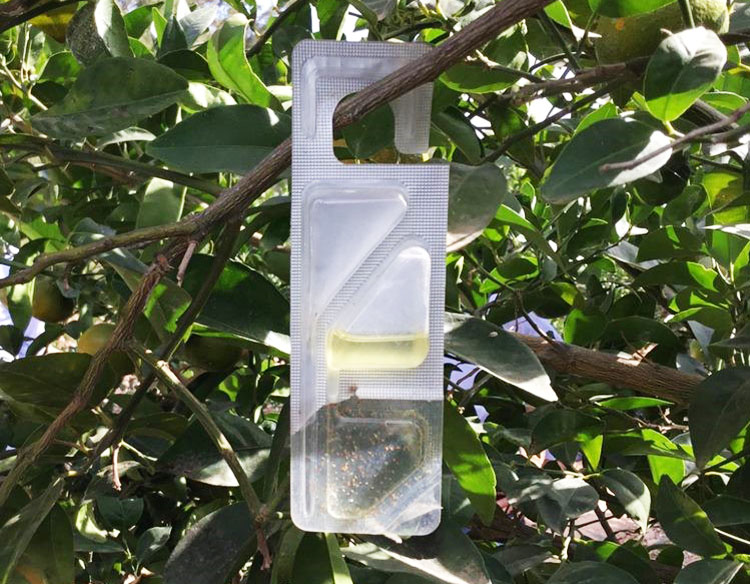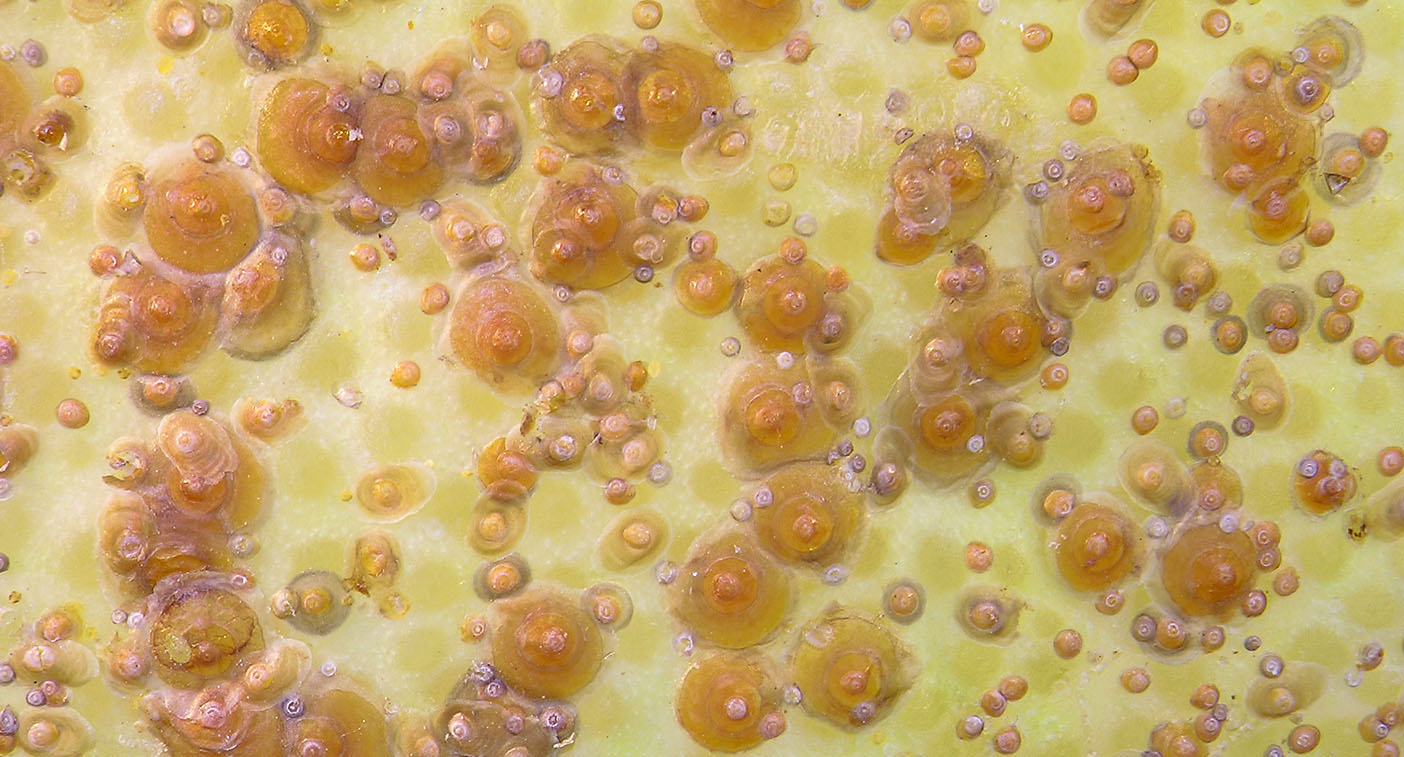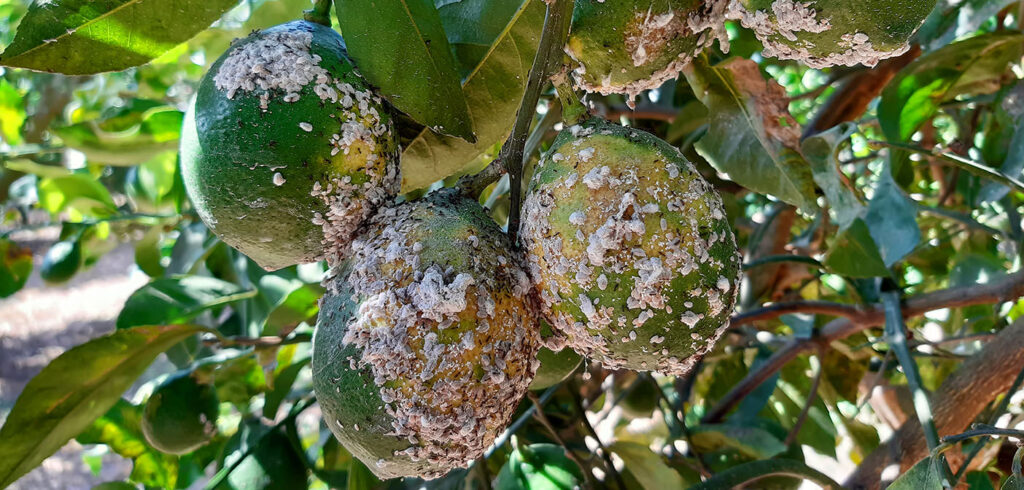Bayer will introduce Vanity Citrus, a new biological and pheromone-based crop protection product to control pests on citrus farms, during next week’s International Symposium on Horticulture in Europe – SHE2021 (March 8-11), which will see scientists and industry leaders discuss the latest achievements and developments in horticulture.
Vanity Citrus is an innovative device – a container with an active liquid inside – that does not generate resistance or residues in harvests or in the environment, according to Bayer. It says it is the first such product on the market that is formulated with pheromones and natural pyrethrum to control pests in citrus fruits. Pheromones effectively control pests by interfering with their mating behaviours, thus preventing their reproduction.

The product is currently being used in Spain and will soon be available to growers of citrus and other crops in other Mediterranean countries. It is licensed for commercial use by Ecología y Protección Agricola (EPA) in Valencia and provides 400 days of pest control.
Vanity Citrus is formulated to gradually reduce the invasive pest populations of three species: California red louse (Aonidiella aurantii), citrus cotonet (Planococcus citri) and South African cotonet (Delottococcus aberiae). The South African cotonet, due to its rapid expansion in recent years and the deformities it causes in citrus fruits, is considered the most invasive fruit pest and the one that alarms growers the most.

“With this, we manage to control and gradually reduce the populations of these species with a more sustainable solution, which does not generate resistance or residues in the harvest or in the environment and, moreover, acts 365 days a year,” said Javier Pérez, head of Bayer Crop Science Fruit Crops in Spain.
Currently the plague of the South African cotonet is affecting more than 40,000 hectares of citrus fruits in the Valencian Community. As a result, the pest is causing the deformation of fruits which not only prevents them for commercial use, but it is also forming new colonies within citrus areas located on the Spanish eastern coast.
Vanity Citrus is the latest addition to Bayer’s biological crop protection portfolio, which includes Serenade, BioAct and Flipper, all designed to improve the quality of produce with low residue levels. Bayer says its biological range of pest control solutions reflect its commitment to help reduce the environmental impact of crop protection by 30% by 2030 without reducing crop yields.
The launch of Vanity Citrus at this year’s SHE2021 event coincides with 2021 being designated as the International Year of Fruits and Vegetables by the United Nations.
SHE2021 Congress
Bayer joins the SHE2021 congress, as a major sponsor. Organized by the University of Hohenheim, Germany, SHE2021 connects leading researchers, renowned speakers, academics, industry experts and other experts from across Europe. More than 500 are expected to attend.
New insights and exciting future research fields will be discussed on plant breeding, nutrition, soil health, crop production and protection. Special attention will be given to the fast progress made to understand the positive contribution of fruit and vegetables to human well-being and health.
On March 8, Bayer will kick start proceedings with a mini-symposium called “Sustainability through Innovation”. Bob Reiter, head of R&D for Bayer Crop, will highlight the company’s commitment to develop novel solutions for fruit and vegetables delivering on the sustainability targets and ambitions of the new European Green Deal.
Reiter will reveal how Bayer has developed a novel concept, called Root2Success, as a more holistic approach to improve and sustain root health in horticulture crops. Protect, heal, activate and preserve are important aspects of this approach, which includes preventive measures, curative treatments, root health enhancers, biostimulants and drip-by-drip technologies.
Bayer will share promising results seen from its adoption by tomato producers in Spain. Through combined use of novel rootstocks of De Ruiter and Seminis Seeds, the inclusion of the biological plant protection products Serenade and BioAct, and the unique nematicide Velum, along with the new digital tool Nematool to monitor nematode development, Reiter will show how tomato productivity has been increased. Integrated control of insect pests in fruit crops will also be illustrated with positive experiences in Italy combining the use of highly selective Movento and the biological insecticide Flipper.
Researchers from Bayer’s vegetables seeds business will shed light on the collaborative breeding concepts accelerating development of new tomato varieties expressing resistance to the devastating tomato brown rugose fruit virus (ToBRFV).
“Bayer is committed to providing European Fruit and Vegetable growers with novel solutions to sustain high productivity,” said Albert Schirring, Bayer Strategy Lead for Vegetable Crops. “Bayer will engage and reach out to researchers in search for new partnerships especially in the field of biological products.”



